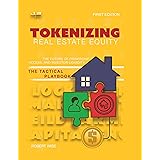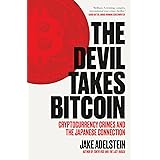The digital landscape often presents dualities: innovation alongside exploitation. As highlighted in the video above, the rise of the Philippine Offshore Gaming Operator (POGO) industry illustrates this complex reality, showcasing both economic opportunity and significant societal challenges. This sector, while once a notable contributor to the Philippine economy, has also become associated with a range of illicit activities, including sophisticated dating and crypto scams, as well as deeply concerning instances of human trafficking. Understanding the intricate dynamics of the POGO industry and its broader implications is crucial for stakeholders and the public alike.
Initially, the Philippine government sought to capitalize on the burgeoning global online gambling market by allowing foreign operators to apply for business licenses. This strategic move was intended to generate revenue and employment, positioning the Philippines as a regional hub for online gaming. However, the rapid expansion of these offshore gaming operations, largely catering to clients in mainland China where gambling is prohibited, introduced a cascade of complex issues that necessitated careful examination and regulatory responses.
The Genesis and Economic Impact of the Philippine Offshore Gaming Operator Industry
The POGO industry experienced a meteoric rise, quickly becoming a significant component of the Philippine economy. By 2019, at the peak of its operations, it was estimated that approximately 130,000 Chinese nationals were employed within this sector. This influx of foreign workers significantly boosted the local real estate market, particularly in Metro Manila, where demand for office spaces and residential units surged. Furthermore, ancillary businesses, such as restaurants, retail stores, and transportation services, benefited from the increased spending power of POGO employees.
However, the economic benefits were often contrasted with a growing list of concerns. While the government collected taxes and fees from these operators, the actual revenue collected often fell short of initial projections, sparking debates about tax compliance and the true economic contribution. Questions were frequently raised regarding the transparency of financial transactions and the potential for capital flight. The rapid growth also placed considerable strain on local infrastructure, from housing to public services, which were not always equipped to handle such a sudden demographic shift.
The Hidden Costs: Connecting POGOs to Crypto Scams and Human Trafficking
Despite its perceived economic advantages, the POGO industry’s expansion has been inextricably linked to a darker underbelly of criminal activities. One of the most alarming aspects has been the proliferation of online scams, particularly those involving cryptocurrency and dating. It has been observed that many of these fraudulent schemes, targeting individuals globally, are often operated out of facilities initially established for legitimate POGO activities. Victims are typically lured through social media or dating apps, developing emotional connections with perpetrators who then convince them to invest in bogus cryptocurrency platforms or other deceptive ventures.
More gravely, the industry has faced persistent accusations of facilitating human trafficking and forced labor. Reports have detailed how individuals, often foreign nationals from various Asian countries, are trafficked into the Philippines under false pretenses of high-paying jobs within the online gaming sector. Upon arrival, their passports are confiscated, and they are subjected to arduous working conditions, often without proper compensation, and forced to engage in scam operations. Should they fail to meet targets or attempt to leave, they are frequently met with threats, violence, or astronomical fees for their “release,” trapping them in a cycle of debt bondage. Such practices represent a severe violation of human rights and pose a significant challenge to international efforts against modern slavery.
Regulatory Scrutiny and Geopolitical Ramifications of Offshore Gaming
The Philippine government has faced immense pressure, both domestically and internationally, to address the issues stemming from the POGO industry. Regulatory bodies have struggled to keep pace with the rapidly evolving nature of online gaming and the sophisticated methods employed by criminal elements. Efforts to implement stricter licensing requirements, conduct thorough background checks on operators, and enhance tax collection mechanisms have been met with mixed success. In response to mounting concerns, measures were implemented to suspend the issuance of new POGO licenses, reflecting a shift towards greater control.
Moreover, the presence of a large number of Chinese nationals working in the sector, many without proper documentation, has complicated diplomatic relations between China and the Philippines. The Chinese government has consistently called for the cessation of all forms of offshore gambling targeting its citizens, viewing it as illegal and a source of social instability. This stance has often led to repatriations of Chinese workers and increased scrutiny on the operations, contributing to a significant decline in the sector’s size since its 2019 peak. The industry’s controversies have thus become a point of contention, impacting broader political and economic ties between the two nations.
The Way Forward: Addressing the Complexities of Offshore Gaming
The challenges presented by the Philippine Offshore Gaming Operator industry are multifaceted, requiring a comprehensive approach that prioritizes human rights and ethical conduct alongside economic development. A crucial step involves strengthening international cooperation to combat transnational organized crime, particularly in the realm of crypto scams and human trafficking. Enhanced intelligence sharing and collaborative law enforcement efforts are vital to dismantle these criminal networks. Furthermore, the development of robust regulatory frameworks that can adapt to technological advancements in online gambling and financial technologies is essential to prevent future exploitation.
For the Philippines, the experience with POGOs highlights the importance of diversifying its economy away from sectors prone to illicit activities. Investing in sustainable industries, fostering a transparent business environment, and protecting vulnerable workers are paramount. The long-term reputational damage and social costs associated with the problematic aspects of the offshore gaming industry far outweigh any short-term economic gains. By addressing these critical issues directly, the Philippines can reinforce its commitment to human rights, national security, and responsible economic growth within the complex global landscape of online gaming.







